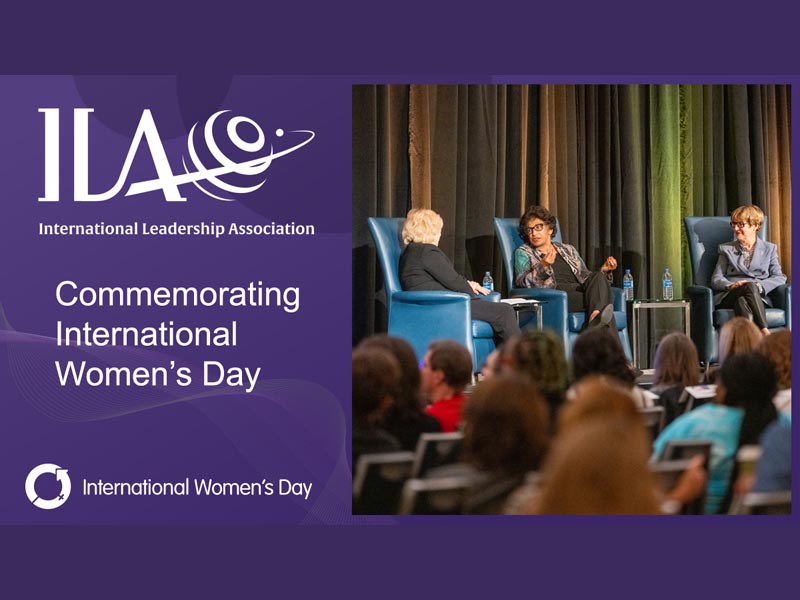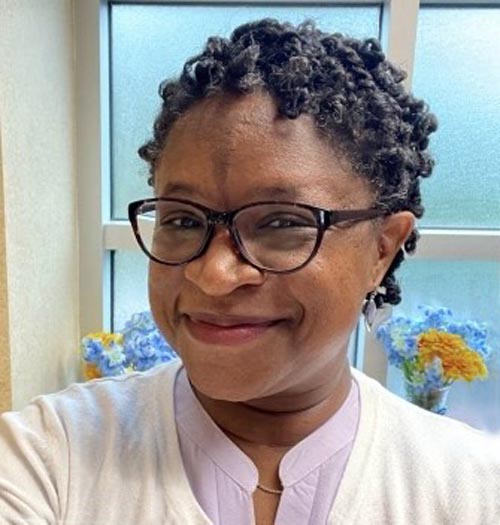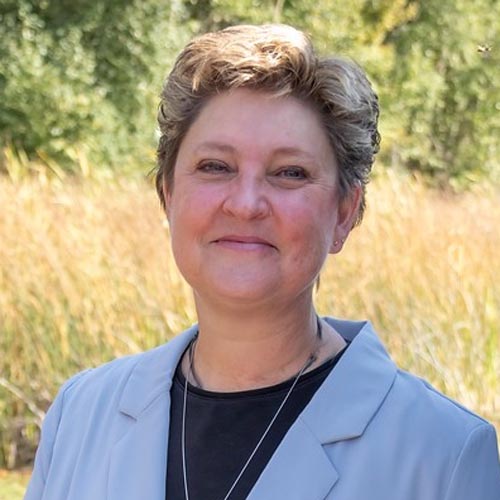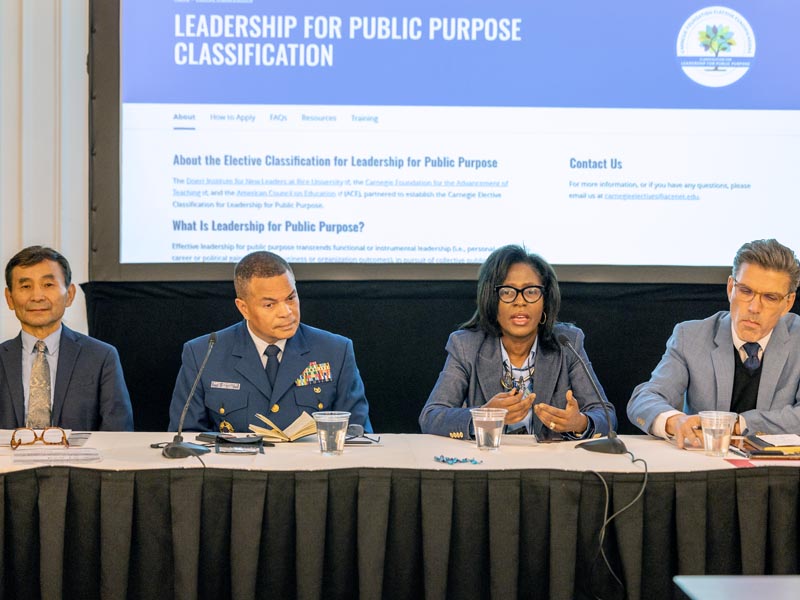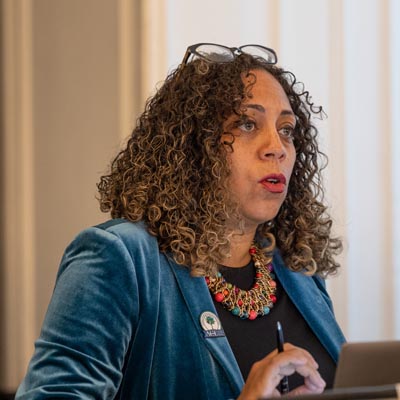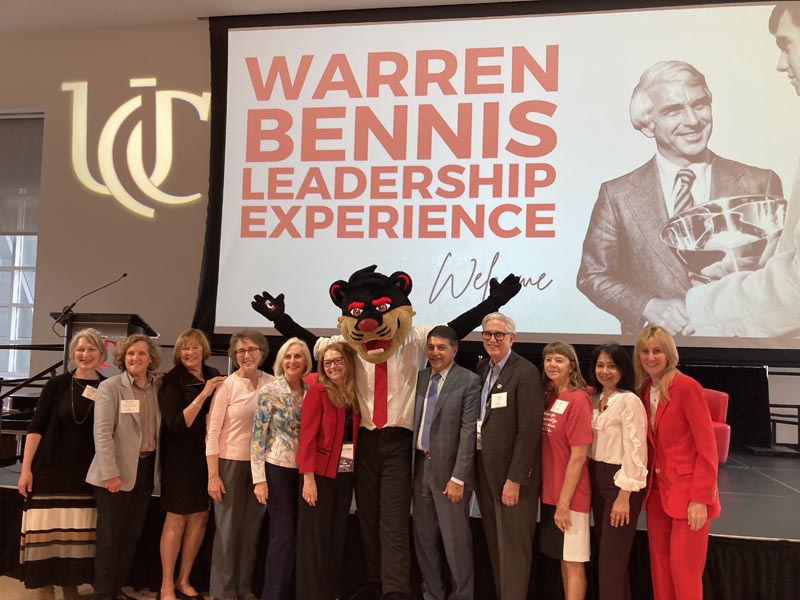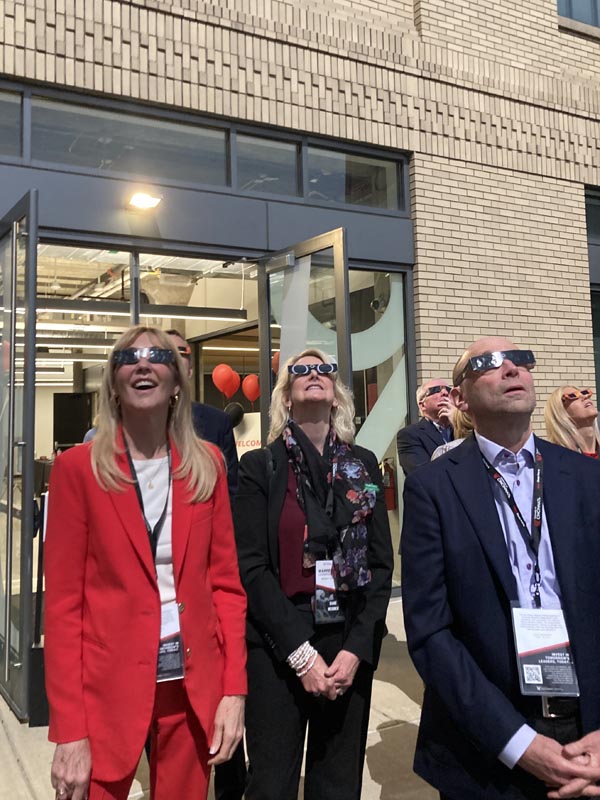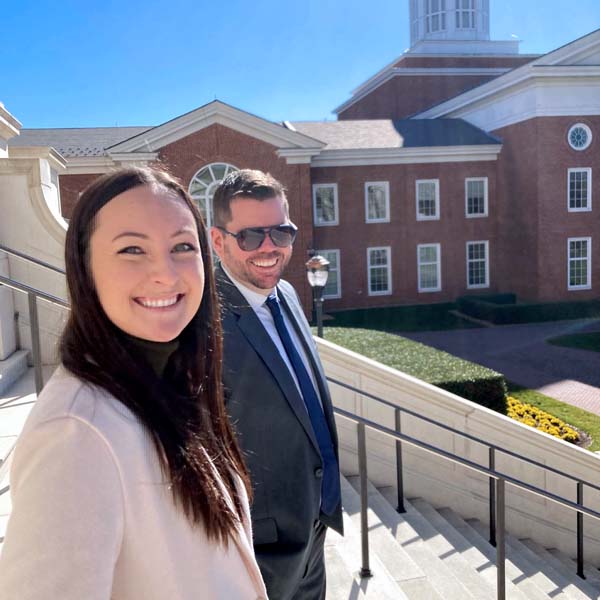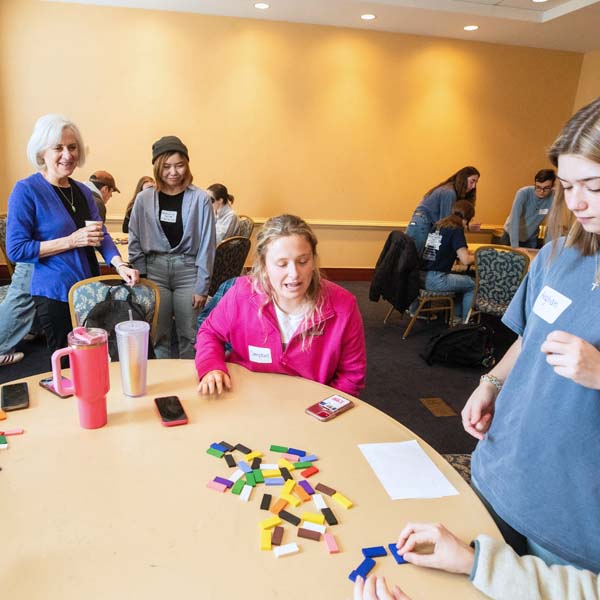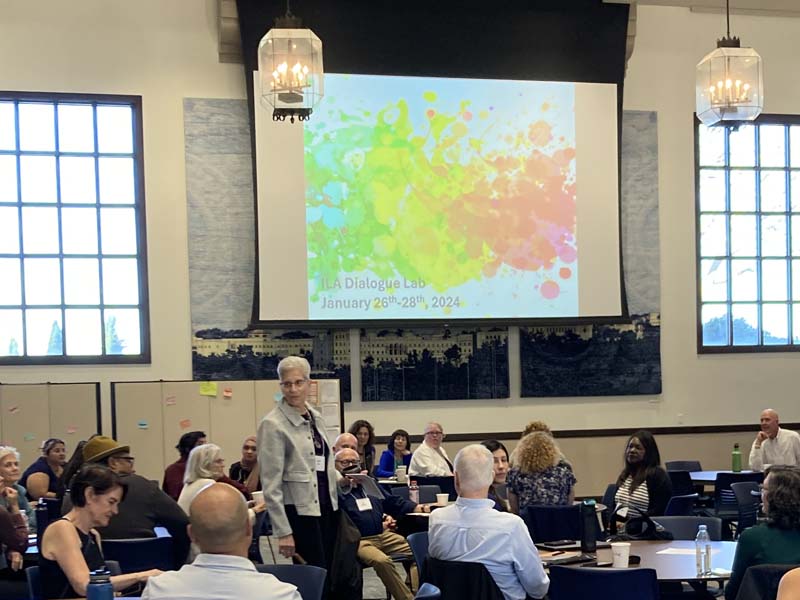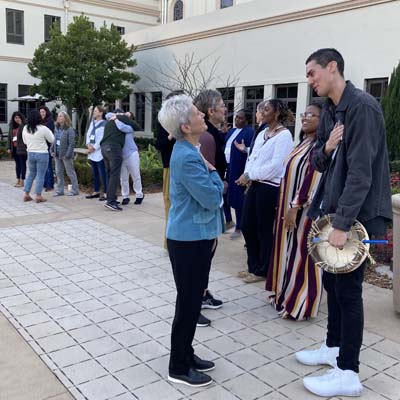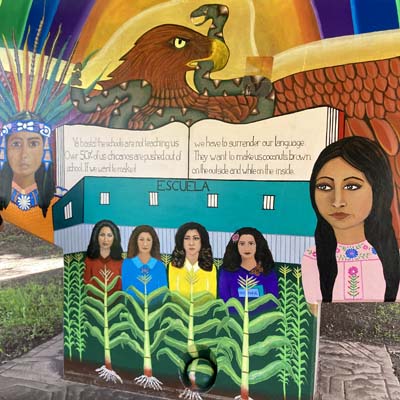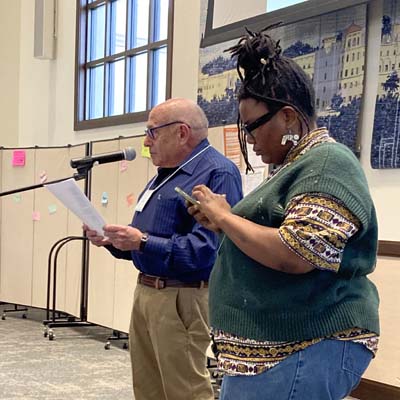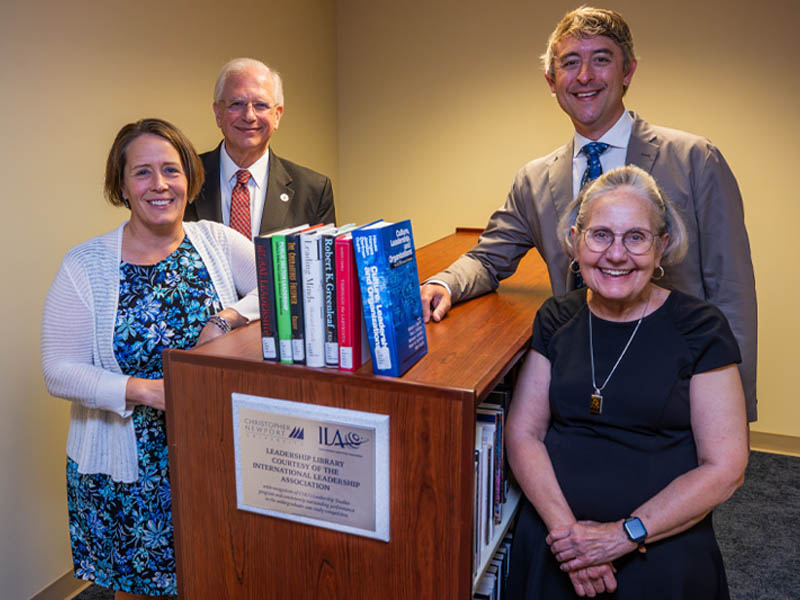
by Kelley McGee
- 29 August 2025
Share this article:
Donation adds depth to the University’s research collection.
The shelves at the Trible Library are richer in leadership wisdom, thanks to a special donation from the International Leadership Association (ILA).
The ILA, a global organization dedicated to advancing leadership knowledge and practice, has gifted a mini-library of leadership books to the University. This new collection, along with a plaque commemorating the gift, celebrates the long partnership between ILA and the University in promoting excellence in leadership studies.
“The books in this special ILA section of the Trible Library will be a wonderful repository of wisdom on leadership themes,” said Associate Professor Brent Cusher, Chair of the Department of Leadership and American Studies. “Having been developed over many years by the preeminent association of scholars and practitioners in leadership studies, it is clear that this collection houses some of the essential readings in the field, as well as many other associated topics. My sincere hope is that our students might be moved to simply browse the books on the shelves, to learn a new perspective or deepen an old one by seeing what catches their eye.”
The donation is more than just books on a shelf. It represents twenty-five years of collaboration and connection between CNU and ILA – a partnership that has helped to shape the University’s renowned Leadership Studies program.
“The International Leadership Association is delighted to support Christopher Newport University’s outstanding Leadership Studies program through this library collection,” said Cynthia Cherry, ILA President. “These books, most of which were written by ILA members, represent decades of scholarship and practice in our field, and we’re thrilled to see them become accessible to CNU students and faculty. Our long-standing partnership with CNU exemplifies the collaborative spirit that advances leadership education globally. When we share knowledge and resources like this, we’re investing in the next generation of leaders who will contribute to the common good in their communities and beyond.”
“Our high caliber leadership education at CNU continues to be informed by new ideas and practices learned in conference sessions, through relationships with colleagues established through ILA events, and from a variety of ILA-sponsored resources”, said Associate Professor S. Lynn Shollen, Department of Leadership and American Studies. “This mini-library is yet one more way that ILA contributes to leadership education at CNU.”
Christopher Newport’s relationship with ILA dates back to 2000, when founding Chair of the Department of Leadership and American Studies Dr. Bob Colvin attended the ILA’s second-ever global conference in Toronto. There, he connected with some of the founders of the leadership studies field, like James MacGregor Burns, Georgia Sorenson and Bernard Brass, to name a few. These connections helped shape CNU’s leadership curriculum and many of the field’s top scholars later visited CNU to engage with students, staff, and faculty.
These connections helped shape CNU’s leadership curriculum, and sparked a long-standing tradition of student engagement in ILA’s global conferences and competitions. Over the years, students have built a legacy of success at the ILA’s annual International Student Case Competition, where teams in undergraduate and graduate student divisions present original research on an international stage.
“CNU’s involvement with ILA has massively shaped our identity as an institution concerned with leadership, in ways that are almost impossible to quantify. The most obvious aspect of this relationship is our annual support of CNU teams at the Undergraduate Case Study Competition, where CNU has taken first place five times over the last seven years,” said Cusher. “Our students do hard work in researching problems in our world and then engage with other scholars at the conference.”
The new ILA library collection is now available to all students and faculty, and will enhance CNU’s commitment to developing Captains into thoughtful, engaged leaders.
This article was originally published by Christopher Newport University and is reprinted with their permission.


